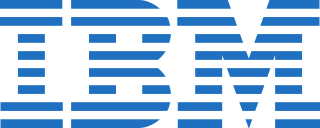
Declared the third largest tech merger in history, and the largest for a software company, IBM and Red Hat have come to a deal in which IBM will purchase Red Hat for $34 billion. IBM says the merger will improve their cloud-based products.
The deal involves IBM getting all the issued and outstanding common stocks of Red Hat for $190 each share in cash. That surpasses by $70 the price of the stock just three days prior, $116.68 a share.
“The acquisition of Red Hat is a game-changer. It changes everything about the cloud market,” said IBM’s chairman, president and CEO, Ginni Rometty.
“IBM will become the world’s number one hybrid cloud provider, offering companies the only open cloud solution that will unlock the full value of the cloud for their businesses.”
Most companies can’t progress due to the limits presented by closed platforms that prevent them from making the transformation to cloud computing. Red Hat solves the problem for IBM due to its open platform configuration.
IBM earned it reputation as a computer hardware company, but it has recently made cloud computing a priority for its growth strategy, like Amazon and Microsoft. The company has been changing their focus to include more analytics, mobile and security.
Red Hat will continue to run its business independently as a separate unit of IBM. Red Hat president and CEO Jim Whitehurst and the management team already in place will continue as is, joining IBM’s senior management team, with Rometty leading the team.
“Today is a banner day for open source,” said Paul Cormier, Red Hat’s vice president and president of products and technologies. “The largest software transaction in history and it’s an open source company. Let that sink in for a minute. We just made history.”
Red Hat was founded in 1993, launching its famous version of Linux OS one year after. It became a pioneer of the open source movement that grew to counter closed source companies like Microsoft which based their strategy on keeping their source codes secret.
The company is based in Raleigh, North Carolina with a presence in 35 countries with about 12,000 employees. It is one of the most well-known open-source firms with customers paying for custom-made software solutions. In fiscal year 2018 the company saw a net profit of $259 million on a turnover of $2.9 billion, which was an increase of 21 percent over 2017.